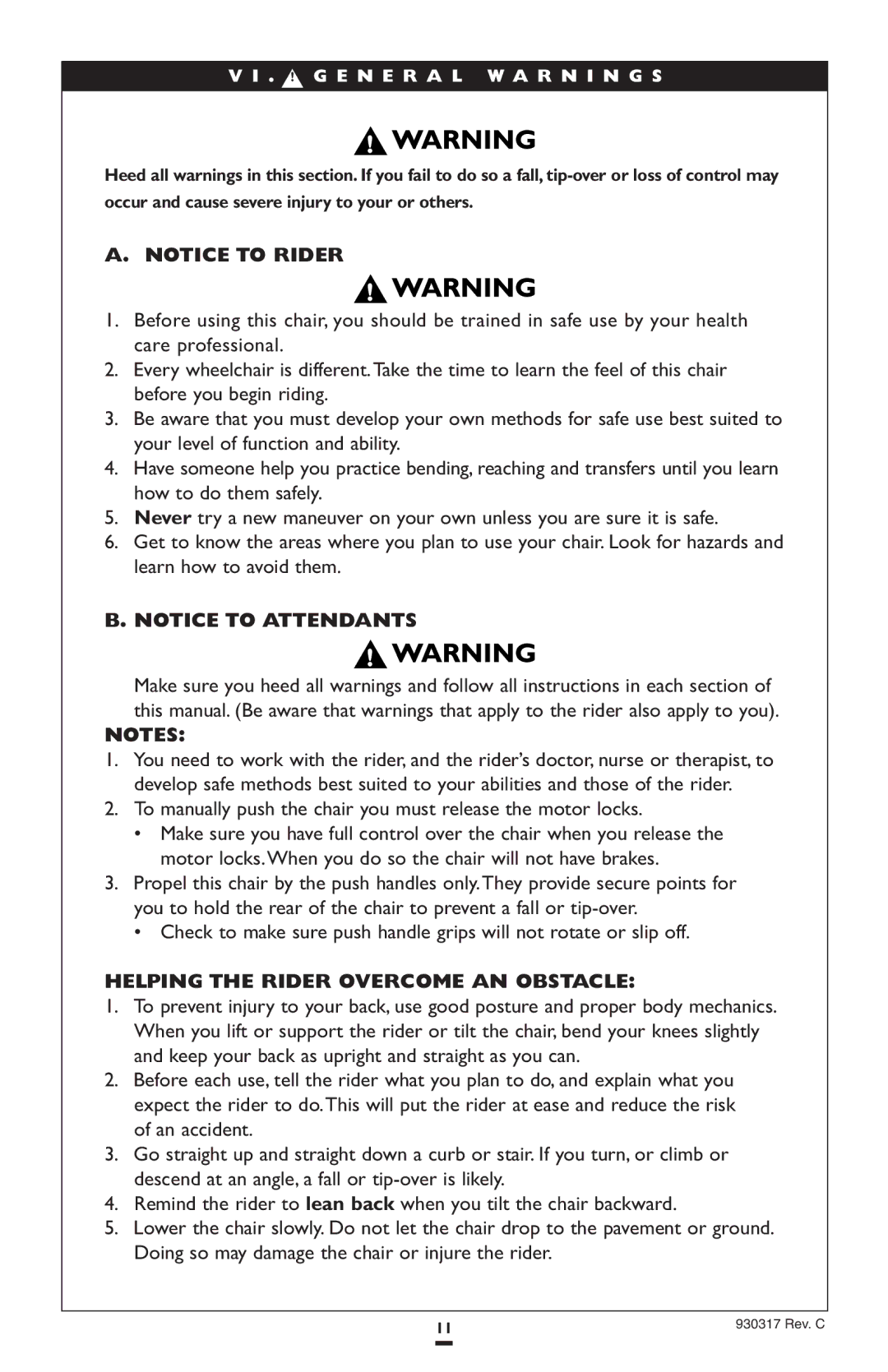
V I . | ▲ | G E N E R A L W A R N I N G S |
! |
Heed all warnings in this section. If you fail to do so a fall,
A. NOTICE TO RIDER |
| |||
|
|
| ||
1. | Before using this chair, you |
|
| in safe use by your health |
| ||||
2. | care professional. |
| ||
Every wheelchair is different.Take the time to learn the feel of this chair | ||||
3. | before you begin riding. |
| ||
Be aware that you must develop your own methods for safe use best suited to | ||||
4. | your level of function and ability. |
| ||
Have someone help you practice bending, reaching and transfers until you learn | ||||
5. | how to do them safely. |
| ||
Never try a new maneuver on your own unless you are sure it is safe. | ||||
6. | Get to know the areas where you plan to use your chair. Look for hazards and | |||
| learn how to avoid them. |
| ||
B. NOTICE TO ATTENDANTS |
| |||
|
|
| ||
| Make sure you heed all warnings |
|
| instructions in each section of |
|
| |||
| this manual. (Be aware that warnings that apply to the rider also apply to you). | |||
NOTES: |
| |||
1. | You need to work with the rider, and the rider’s doctor, nurse or therapist, to | |||
2. | develop safe methods best suited to your abilities and those of the rider. | |||
To manually push the chair you must release the motor locks. | ||||
| • Make sure you have full control over the chair when you release the | |||
3. | motor locks.When you do so the chair will not have brakes. | |||
Propel this chair by the push handles only.They provide secure points for | ||||
| you to hold the rear of the chair to prevent a fall or | |||
| • Check to make sure push handle grips will not rotate or slip off. | |||
HELPING THE RIDER OVERCOME AN OBSTACLE: | ||||
1. | To prevent injury to your back, use good posture and proper body mechanics. | |||
| When you lift or support the rider or tilt the chair, bend your knees slightly | |||
2. | and keep your back as upright and straight as you can. | |||
Before each use, tell the rider what you plan to do, and explain what you | ||||
| expect the rider to do.This will put the rider at ease and reduce the risk | |||
3. | of an accident. |
| ||
Go straight up and straight down a curb or stair. If you turn, or climb or | ||||
4. | descend at an angle, a fall or |
| ||
Remind the rider to lean back when you tilt the chair backward. | ||||
5. | Lower the chair slowly. Do not let the chair drop to the pavement or ground. | |||
| Doing so may damage the chair or injure the rider. | |||
11 | 930317 Rev. C |
|
|
